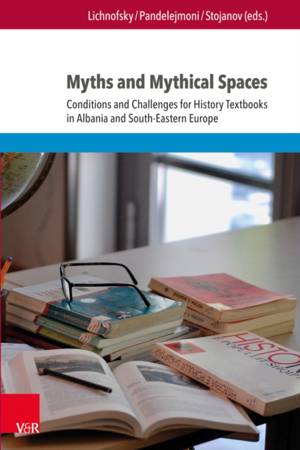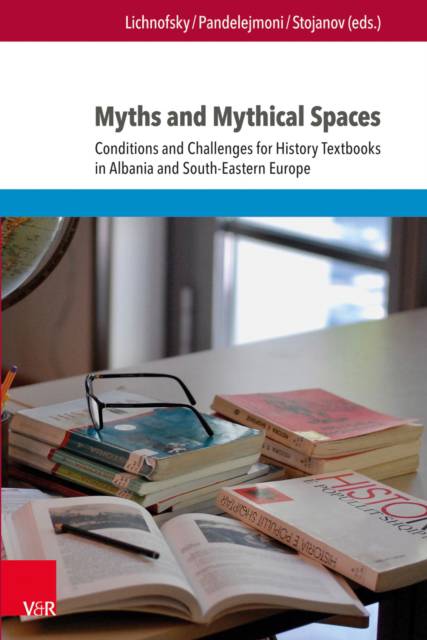
Bedankt voor het vertrouwen het afgelopen jaar! Om jou te bedanken bieden we GRATIS verzending (in België) aan op alles gedurende de hele maand januari.
- Afhalen na 1 uur in een winkel met voorraad
- In januari gratis thuislevering in België
- Ruim aanbod met 7 miljoen producten
Bedankt voor het vertrouwen het afgelopen jaar! Om jou te bedanken bieden we GRATIS verzending (in België) aan op alles gedurende de hele maand januari.
- Afhalen na 1 uur in een winkel met voorraad
- In januari gratis thuislevering in België
- Ruim aanbod met 7 miljoen producten
Zoeken
Myths and Mythical Spaces
Conditions and Challenges for History Textbooks in Albania and South-Eastern Europe
€ 52,95
+ 105 punten
Omschrijving
This volume addresses textbooks written in the Albanian language and in use in Albania, Kosovo, Macedonia and Serbia. Political myths and mythical spaces play a key role in shaping processes of identity-building, concepts of 'self' and 'other', and ideas pertaining to the location of the self and nation within a post-conflict context. The Albanian case is particularly interesting because the majority of Albanians live outside the borders of Albania, despite the existence of the nation-state, which gives rise to fascinating complexities regarding the shaping of national identities and myths surrounding concepts of 'self' and 'other'. What textbooks teach is always of political interest, as they represent society's intentions for its next generation. This renders identity-building processes via textbooks in this context a particularly fascinating topic for research, here examined through the lens of myths and mythical spaces.
Specificaties
Betrokkenen
- Uitgeverij:
Inhoud
- Aantal bladzijden:
- 275
- Taal:
- Engels
- Reeks:
Eigenschappen
- Productcode (EAN):
- 9783847108115
- Verschijningsdatum:
- 4/12/2017
- Uitvoering:
- Paperback
- Formaat:
- Trade paperback (VS)
- Afmetingen:
- 155 mm x 229 mm
- Gewicht:
- 430 g

Alleen bij Standaard Boekhandel
+ 105 punten op je klantenkaart van Standaard Boekhandel
Beoordelingen
We publiceren alleen reviews die voldoen aan de voorwaarden voor reviews. Bekijk onze voorwaarden voor reviews.








